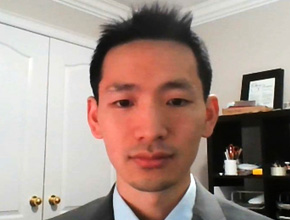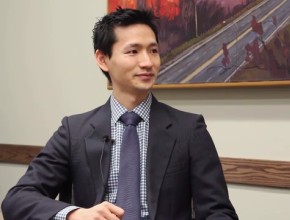References
Chu DK, Wood RA, French S, et al. Oral immunotherapy for peanut allergy (PACE): a systematic review and meta-analysis of efficacy and safety. Lancet. Published online April 25, 2019. doi:http://dx.doi.org/10.1016/S0140-6736(19)30420-9.Roman Jaeschke, MD, MSc: Good afternoon. It is another edition of McMaster Perspective and we are welcoming again Doctor Derek Chu, who talks to us about a lot of allergy concepts.
My understanding is that he is going to be the lead author of a Lancet article dealing with peanut allergy. The article has not been published yet so we will have to wait with releasing this recording [the article was published on April 25, 2019]. But assuming that it has been just published, what can you tell us about the subject of your publication?
Derek Chu, MD, PhD: Peanut allergy is an extremely common condition that is affecting millions around the world and it is rising globally. There is increasing interest in trying to develop an actual treatment for this very important disease, because the only available option right now is purely strict avoidance to prevent allergic and anaphylactic reactions to even unintentional ingestion of peanut.
There have been a number of important advances and randomized trials reported here and there about the potential benefits of oral immunotherapy. What we set out to do is a complete, comprehensive, and objective systematic review and meta-analysis of all these available trials, because to date there have been no evidence-informed guidelines or firm information to inform both practitioners and the vast majority of patients and their relatives or parents as to what the actual risks and benefits of this therapy are.
Roman Jaeschke: And the therapy is desensitization?
Derek Chu: Yes. This therapy involves desensitization by oral immunotherapy—that is, gradual ingestion of increasing amounts of peanut, typically in a powder form, over the course of about a year to achieve desensitization.
Roman Jaeschke: And how do we find out whether this was successful or not?
Derek Chu: This is a very important point. Traditionally, in the field of allergy it has been evaluated whether the patient is desensitized by using a provocation test: bringing the patient into a clinic, giving them whatever they are allergic to, and seeing if we can generate or mimic an allergic response. Right now what we are doing is a food challenge: the patient comes to a clinic when they are well, we give them the food, if they can eat it, they are desensitized.
The problem behind this, and that is uncovered by our analysis, is that it is not reflective of what patients actually want. Patients want to know, “If I am desensitized, am I going to be protected from an everyday exposure? Will I have more and more anaphylactic events over time?” rather than whether they can come to a clinic and eat the allergen under a controlled setting.
Roman Jaeschke: What are the results in terms of those patient-important outcomes?
Derek Chu: Analyzing over 1000 patients’ experiences across 12 trials, we found that yes, the patients can become desensitized. There is an approximately 30% to 40% chance of risk difference of them becoming desensitized and passing the challenge if they are brought into a clinic-controlled setting.
However, if you analyze the risk and incidence rate of anaphylactic and other allergic events, over time those patients actually have many, many more of them. The risk difference for anaphylaxis defined by the National Institute of Allergy and Infectious Diseases (NIAID) 2011/2012 criteria is 15% higher for patients on immunotherapy compared to those assigned a placebo. This is also borne out by a 5% increase in epinephrine use; that is rescue epinephrine, for example, EpiPen in Canada.
Roman Jaeschke: In absolute terms, right?
Derek Chu: Yes, in absolute terms.
Roman Jaeschke: So 5 more per 100 used epinephrine?
Derek Chu: Correct. And we found, importantly, that the rate of reactions was the same whether it had been during the build-up phase of desensitization or during the maintenance phase. That is to say, throughout the entire desensitization period patients did not have less frequent reactions—they had the same amount of them.
Roman Jaeschke: Is there any explanation why? They should have fewer reactions.
Derek Chu: You would think that if they had lost their allergy, they would have less frequent reactions. However, we did a number of other meta-regression analyses that showed that desensitization measured in all those different trials has a very important limitation—it was happening in a controlled clinic setting—and it is actually incomplete and quite variable.
Roman Jaeschke: If I were to comment on it, then we should not be doing it.
Derek Chu: That is one emerging message: the net outcome of current forms of oral immunotherapy—which is the first iteration of trying to bring it to the clinic—actually may have a net unfavorable outcome for the large majority of patients.
There are very powerful anecdotes and other observations that have been seen and reported, but I think the next major focus needs to be on improved therapies for peanut allergy, especially ones that are safer and more rigorously tested in the next generation of randomized trials.
Roman Jaeschke: I think you have a wide field of action for years to come, and as soon as such evidence is available, we will be talking again. In the meantime, thank you very much and congratulations on your new publication.
Derek Chu: Thank you.
 English
English
 Español
Español
 українська
українська






